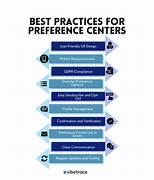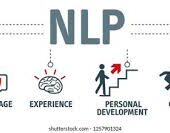AI Data Management is the strategic and systematic handling of an organization’s data assets through the integration of AI technology. The primary goal is to enhance data quality, analysis, and decision-making processes. This encompasses the implementation of procedures, guidelines, and technical methodologies for the efficient collection, organization, storage, and utilization of data.
While Generative AI receives considerable attention, more established AI applications, such as predictive analytics and chatbots, have long proven beneficial for organizations. Technical leaders leveraging AI report notable improvements in decision-making speed and operational efficiency. Beyond speed, analytics and IT leaders find more time to address strategic challenges rather than being immersed in routine tasks. Customers also experience significant enhancements in satisfaction due to AI. With AI outcomes heavily reliant on data quality, nearly nine in 10 analytics and IT leaders prioritize data management as a high concern amidst new AI developments.
Artificial Intelligence quietly contributes to data management by addressing aspects like quality, accessibility, and security. As organizations accelerate digital transformation, AI and Machine Learning are increasingly harnessed to maximize data value.
Effective data management is pivotal in creating an environment where data becomes a valuable asset throughout the organization. It mitigates issues arising from poor data, such as friction, inaccurate predictions, and accessibility challenges, ideally preventing them proactively.
The labor-intensive nature of data management involves cleaning, extracting, integrating, cataloging, labeling, and organizing data. AI plays a crucial role in organizing data by analyzing extensive datasets and identifying relevant and high-quality content based on predefined criteria. It assists in tagging, categorizing, and summarizing content, simplifying user access to needed information.
AI significantly contributes to various data management areas, including classification, cataloging, quality improvement, security, and data integration. It excels in tasks such as obtaining, extracting, and structuring data, locating data, reducing errors, ensuring security, and building master lists.
In the realm of database management systems, AI is integrated, particularly machine learning, for automatic diagnosis, monitoring, alerting, and protection of databases. This advancement allows software to manage these tasks autonomously.
ML data management applies data quality practices and debugging solutions to machine learning processes. Techniques such as embeddings/similarity search, active learning, meta-learning, and reinforcement learning are utilized for understanding data.
AI databases play a crucial role in meeting the complex querying needs of AI systems, providing flexibility and power to enhance innovation and progress. AI-powered solutions contribute to data management by analyzing access patterns, detecting anomalies, and ensuring compliance with privacy regulations through anonymization or pseudonymization of sensitive data.
🔔🔔 Follow us on LinkedIn 🔔🔔













